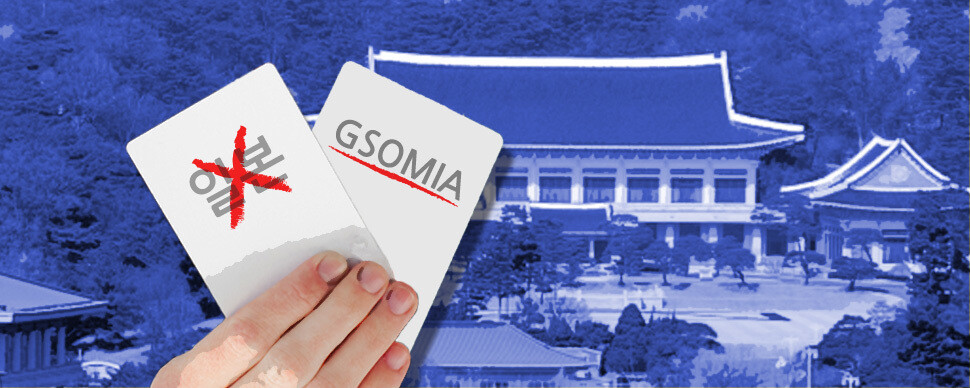hankyoreh
Links to other country sites 다른 나라 사이트 링크
Public opinion canvassing for removing Japan from white list ends on Sept. 3

The public comment process ends on Sept. 3 for a Public Notice on Trade of Strategic Items amendment to remove Japan from South Korea’s “white list” of countries receiving expedited export review procedures for strategic items.
The amended notice appears set to enter effect in around two weeks, barring the Japanese government’s agreement to dialogue with Seoul or other signs of a more progressive stance. Companies that export strategic items and technology to Japan are now having to gird themselves for the intensified export review regulations.
“The legislation announcement period ends tomorrow [Sept. 3] for the Public Notice on Trade of Strategic Items,” said Park Ki-young, spokesperson for the Ministry of Trade, Industry, and Energy (MOTIE), in a regular briefing on Sept. 3 at the Sejong Government Complex.
“The situation is reported as normal, and after the end of the legislation announcement period, we are expected to go through procedures with the [presidential] regulation reform committee before announcing [the amendment] in the government bulletin next week, after which it would enter effect the following week,” Park explained.
Since announcing the planned amendment of the public notice on Aug. 14 through the Citizen Participation Legislation Center web site and elsewhere, MOTIE is gathering feedback for a 20-day period in accordance with regular public notice amendment procedures.
To date, neither the Japanese government nor business groups have participated in the public comment process, a MOTIE official said. The South Korean government and business groups previously submitted official opinions to the Japanese Ministry of Energy, Trade, and Industry when Tokyo was going through procedures to amend its Export Trade Control Order to remove South Korea from its own white list.
Once the amended public notice goes into effect, Japan will be removed from “Region A” – the equivalent of South Korea’s “white list” – and placed in the “A-2” category. “Region A-2” is being newly created for countries among the 29 parties to the four major international export control systems for strategic items, including the Wassenaar Arrangement, that operate export control systems contrary to the principles of the international export control regime. Japan is the only country being placed in the A-2 category with this amendment. Companies exporting strategic items or technology to A-2 countries must receive individual permits as a rule; those seeking permits must submit five forms of documentation, as opposed to one previously. The review period is to increase from five to 15 days. Catch-all regulations, which represent a comprehensive control system for items not classified as strategic goods, are also to be intensified.
The South Korean government previously said that it would work to minimize the negative impact of the amended public notice on domestic companies. But the nature of the export control system is such that if fewer South Korean companies are negatively affected, the impact on the Japanese economy will inevitably be smaller. In other words, some damage to domestic companies is unavoidable if the measure is to deal an actual blow to Japan.
“Controlling exports to Japan will exacerbate the struggles of small businesses amid the trends of declining exports and a reduced growth rate and will have a negative impact on South Korea’s advantage in WTO cases and its strategy for winning,” predicted Song Kee-ho, an attorney specializing in international trade with the group MINBYUN-Lawyers for a Democratic Society.
“We need to put off amending the notice and hold more discussions, including public hearings,” Song argued.
An executive of the Korea International Trade Association said, “This strategy of taking Japan off the white list and filing a case with the World Trade Organization appears to be a move to put [South Korea] in the position to negotiate on an equal footing with Japan in the future.”
By Choi Ha-yan, staff reporter
Please direct comments or questions to [english@hani.co.kr]

Editorial・opinion
![[Column] Season 2 of special prosecutor probe may be coming to Korea soon [Column] Season 2 of special prosecutor probe may be coming to Korea soon](https://flexible.img.hani.co.kr/flexible/normal/500/300/imgdb/original/2024/0426/3317141030699447.jpg) [Column] Season 2 of special prosecutor probe may be coming to Korea soon
[Column] Season 2 of special prosecutor probe may be coming to Korea soon![[Column] Park Geun-hye déjà vu in Yoon Suk-yeol [Column] Park Geun-hye déjà vu in Yoon Suk-yeol](https://flexible.img.hani.co.kr/flexible/normal/500/300/imgdb/original/2024/0424/651713945113788.jpg) [Column] Park Geun-hye déjà vu in Yoon Suk-yeol
[Column] Park Geun-hye déjà vu in Yoon Suk-yeol- [Editorial] New weight of N. Korea’s nuclear threats makes dialogue all the more urgent
- [Guest essay] The real reason Korea’s new right wants to dub Rhee a founding father
- [Column] ‘Choson’: Is it time we start referring to N. Korea in its own terms?
- [Editorial] Japan’s rewriting of history with Korea has gone too far
- [Column] The president’s questionable capacity for dialogue
- [Column] Are chaebol firms just pizza pies for families to divvy up as they please?
- [Column] Has Korea, too, crossed the Rubicon on China?
- [Correspondent’s column] In Japan’s alliance with US, echoes of its past alliances with UK
Most viewed articles
- 1[Column] Season 2 of special prosecutor probe may be coming to Korea soon
- 2‘We must say no’: Seoul defense chief on Korean, USFK involvement in hypothetical Taiwan crisis
- 3No good, very bad game for Korea puts it out of Olympics for first time since 1988
- 4Is Japan about to snatch control of Line messenger from Korea’s Naver?
- 5Division commander ordered troops to enter raging flood waters before Marine died, survivor says
- 6Is N. Korea threatening to test nukes in response to possible new US-led sanctions body?
- 7Korea’s 1.3% growth in Q1 signals ‘textbook’ return to growth, says government
- 8N. Korean delegation’s trip to Iran shows how Pyongyang is leveraging ties with Moscow
- 9[Editorial] Korea’s surprise Q1 growth requires objective assessment, not blind fanfare
- 10Amnesty notes ‘erosion’ of freedom of expression in Korea in annual human rights report